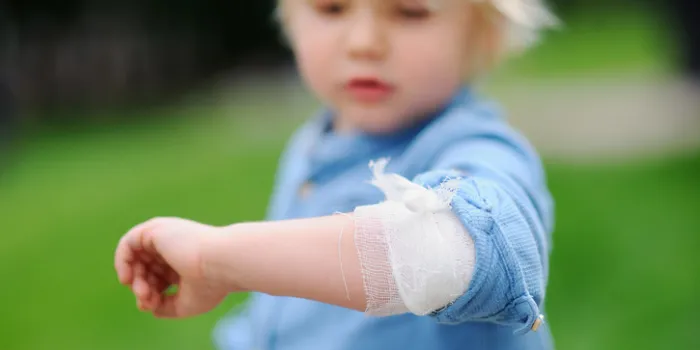A joint bleed is the most common type of bleeding in people with hemophilia. Someone with severe hemophilia may have a joint bleed as often as two or three times a month, but a person with mild hemophilia may only encounter the problem if he or she experiences major trauma or surgery.
How a joint bleed happens
When a joint undergoes stress during normal activities like walking or climbing stairs, the synovial membrane—the layer of blood-rich cells that protects and lubricates the joint—can bleed when it becomes pinched, pulled or stretched.
While the body’s normal coagulation system prevents or stops the bleeding, when someone has hemophilia, the bleeding doesn’t stop, resulting in a joint bleed.
The knees, elbows and ankles are most susceptible to joint bleeds, but the problem can also occur in the hips, shoulders, fingers and toes. Joint bleeds rarely occur in the spine, ribs, skull and pelvis because these joints don’t have synovial membranes.
If a joint bleed recurs frequently, the tendons and ligaments around the joint may shrink, reducing the joint’s range of movement.
Regular physical activity can help prevent joint bleeds because strong muscles help keep joints stable and less likely to bleed.
Common signs of bleeding into joints
- A bubbling or tingling sensation in the joint.
- Joint pain. (A young child may seem to cry for no apparent reason.)
- Skin over the affected joint is warm to the touch. (A child may say his or her joints “feel warm inside.”)
- Joint swelling.
- Reduced ability to move the joint. (A child may limp or have trouble walking or using his or her hands.)
- Reluctance to use an arm or leg. (A child may not be able to reach for an object or may reach with the hand he or she normally doesn’t use.)
How to cope with a joint bleed
• Treat it with clotting factor.
• R.I.C.E. (rest, ice, compression, elevation) may help to relieve pain.
• If you suspect a bleed in the head, throat, back or stomach, this could be life-threatening. Immediately call your HTC and go to the emergency room, or call 911.

